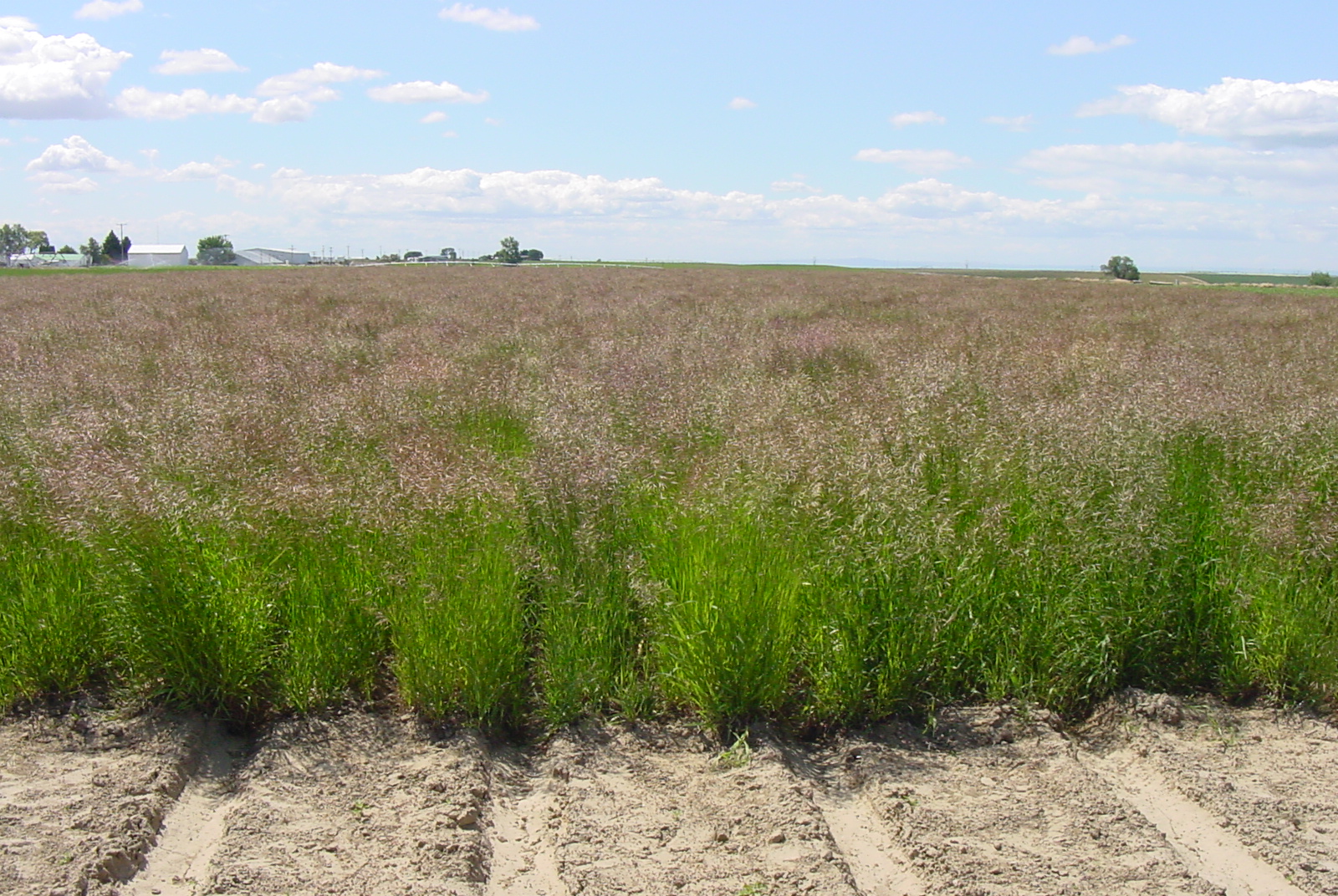Bromus inermis (Smooth brome)
Cool season, moderately drought tolerant, long-lived sod-former. Vigorous rhizomes adapted to deep soils. Productive, starting growth in early spring, ripening by early summer and producing abundant late summer and fall regrowth. Highly palatable to livestock when green, fair palatability to wildlife. Varieties listed below.
DISTRIBUTION / ADAPTATION
INFORMATION & ATTRIBUTES
Family: Poaceae
Duration: Perennial
Growth Habit: Graminoid
Native Status: Introduced
Season: Cool season
Growth Form: Rhizomatous
Mature Height: 30 in.
Annual Precipitation: 18-60 in.
Drought Tolerance: Medium
Shade Tolerance: Intolerant
Elevation:
Fire Resistance: No
Fire Tolerance: High
SOIL ADAPTATION
Coarse Texture: No
Medium Texture: Yes
Fine Texture: Yes
Salinity Tolerance: Medium
CaCO3 Tolerance: Low
pH Range: 5.5-8.0
SEEDING NOTES
Seeds per Pound: 142,800
Seeding Rate: 5-12 PLS lbs/acre
Season: Spring/Fall
Days to Germination:
VARIETIES
Carlton - Leafy, high yielding forage variety used for hay and pasture. Candidate for mine reclamation having demonstrated a tolerance to industrial soils. Considered to be best suited to the northern U.S. and Canada. High seed yields. (Released 1961, origin: Saskatchewan, CAN)
Lincoln - Aggressive, develops strong rhizomes and forms sod. Easy establishing with good seedling vigor. Considered to be best suited to the southern half of the U.S. (Released 1942, origin: CA, originally from Hungary)
Manchar - Mild sod-former which does not become sod-bound as quickly as Lincoln. Maintains good balance with legumes. Used throughout the west and northern latitudes of the U.S. (Released 1943, origin: Manchuria, China)


